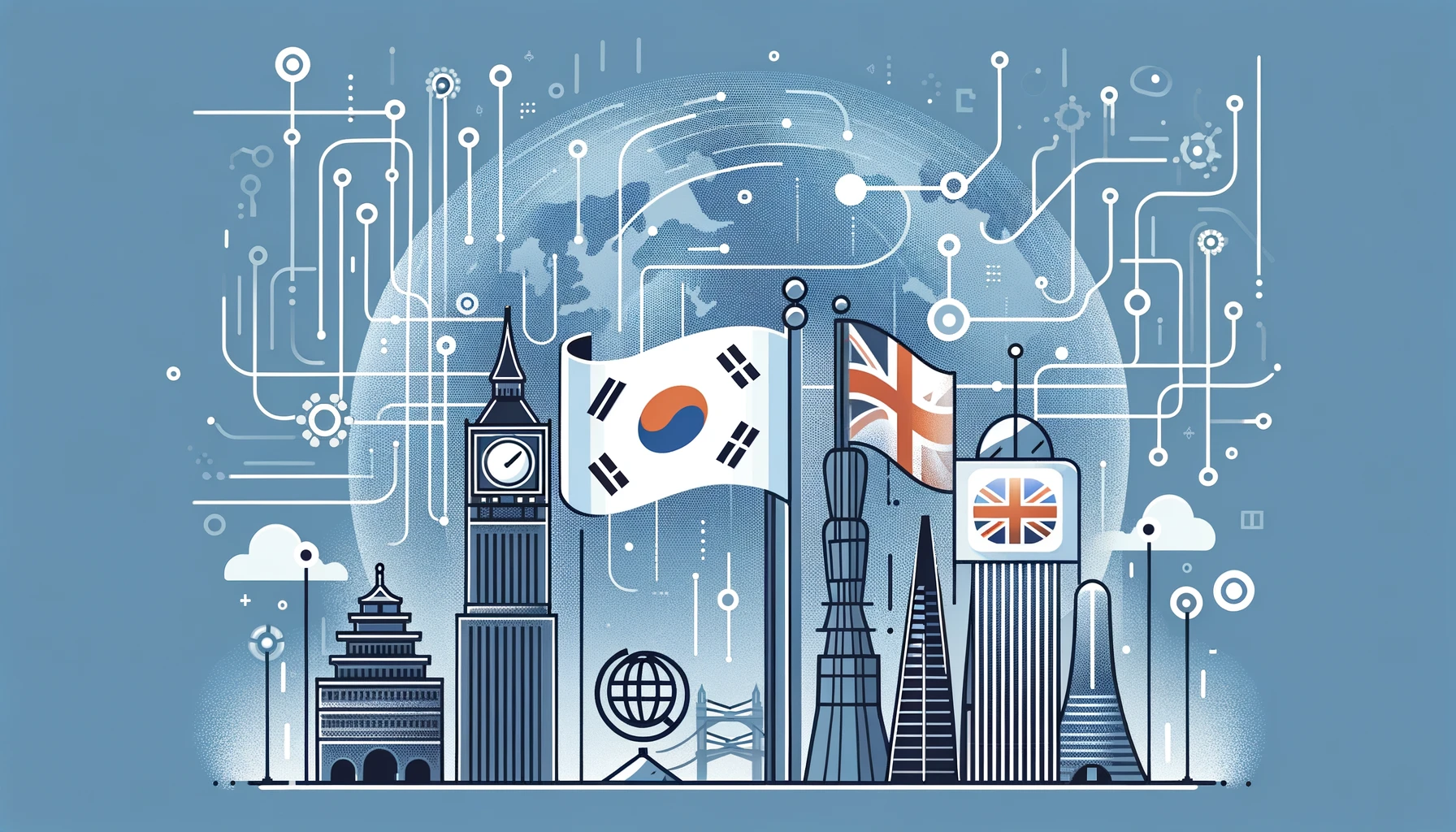
SEOUL – This week, South Korea and the United Kingdom will co-host the second global AI summit in Seoul, responding to the breathtaking pace of innovation since the first AI summit in November. Governments worldwide are scrambling to address the growing array of risks associated with artificial intelligence.
UK Prime Minister Rishi Sunak and South Korean President Yoon Suk Yeol will oversee a virtual summit on Tuesday. This summit comes amid urgent calls for better regulation of AI, despite sharp disagreements over how the technology may affect humanity. In a joint opinion article published in the UK’s i newspaper and South Korea’s JoongAng Ilbo, Sunak and Yoon emphasized, “Although positive efforts have been made to shape global AI governance, significant gaps still remain.”
The November event was billed as the AI Safety Summit, but the scope of challenges has expanded significantly since then. The upcoming meetings, now billed as the AI Seoul Summit, will address three key priorities: AI safety, innovation, and inclusion, according to the summit’s website.
Key Priorities of the AI Seoul Summit
| Priority | Description |
|---|---|
| AI Safety | Addressing risks like large-scale labor market impacts, AI-enabled hacking, and potential loss of control. |
| Innovation | Promoting advancements while ensuring responsible development and deployment of AI technologies. |
| Inclusion | Ensuring equitable access to AI benefits and addressing disparities in AI development and application. |
A recently released global AI safety report highlighted the emerging risks associated with AI, such as large-scale labor market disruptions, AI-enabled hacking or biological attacks, and the potential loss of societal control over general-purpose AI. While there is ongoing debate about the likelihood of these risks, the report, supported by experts from more than 30 countries, stated, “It will be the decisions of societies and governments that will determine the future of AI.”
The report also acknowledged a broader spectrum of risks from the rapidly evolving technology, including existential threats to humanity, AI inequality, data scarcity, misuse of copyrighted material, and the significant environmental impact due to the vast amount of electricity consumed by AI data centers.
During the UK-hosted November summit, notable figures such as Tesla’s Elon Musk and OpenAI CEO Sam Altman engaged with some of their fiercest critics. Additionally, China co-signed the “Bletchley Declaration” alongside the United States and other nations, committing to collectively manage AI risks.
- AI Safety: Tackling potential large-scale labor market disruptions and AI-enabled hacking.
- Innovation: Encouraging responsible AI development and deployment.
- Inclusion: Addressing AI disparities and promoting equitable access to AI benefits.
- Broader Risks: Considering AI inequality, data scarcity, and environmental impacts.
The second global AI summit aims to build upon the foundation laid in November, focusing on fostering international cooperation to navigate the complex landscape of AI risks and opportunities. As AI continues to advance at a rapid pace, the decisions made by global leaders at this summit will play a crucial role in shaping the future of AI governance and development.
In their joint opinion article, Sunak and Yoon stressed the importance of establishing global AI standards to prevent a “race to the bottom” in AI governance. They argued that without coordinated international efforts, the risks associated with AI could outweigh the benefits, leading to significant societal and economic challenges.
The AI Seoul Summit will feature discussions on the following critical areas:
- AI Safety: Addressing the immediate and long-term risks posed by AI technologies.
- AI Innovation: Promoting advancements in AI while ensuring ethical and responsible development.
- AI Inclusion: Ensuring that AI benefits are accessible to all, reducing disparities in AI access and development.
Additionally, the summit will explore the implications of AI on various sectors, including healthcare, finance, and education. Experts will discuss how AI can be leveraged to drive innovation and improve outcomes in these fields while mitigating potential risks.
- Labor Market Impacts: Potential large-scale disruptions due to automation and AI integration.
- AI-Enabled Hacking: Increased risks of cyber-attacks facilitated by advanced AI technologies.
- Biological Attacks: Concerns over AI’s role in enabling new forms of biological threats.
- Societal Control: The potential loss of control over general-purpose AI systems.
- Existential Risks: The broader threats to humanity posed by unchecked AI development.
- AI Inequality: Disparities in AI access and benefits among different populations.
- Data Scarcity: Challenges related to the availability and quality of data for AI training.
- Copyright Issues: The use of copyrighted material in AI applications and the associated legal implications.
- Environmental Impact: The significant energy consumption of AI data centers and its effects on the environment.
As the AI Seoul Summit unfolds, global leaders and experts will work towards creating a cohesive framework for AI governance that addresses these multifaceted challenges. By fostering international collaboration, the summit aims to ensure that AI development proceeds in a manner that maximizes benefits while minimizing risks.
The decisions made at this summit will have far-reaching implications for the future of AI, influencing not only technological advancements but also societal and economic landscapes worldwide. As AI continues to evolve, the importance of robust and coordinated governance cannot be overstated. The AI Seoul Summit represents a critical step towards achieving this goal.
Related News:
Featured Image courtesy of DALL-E by ChatGPT
